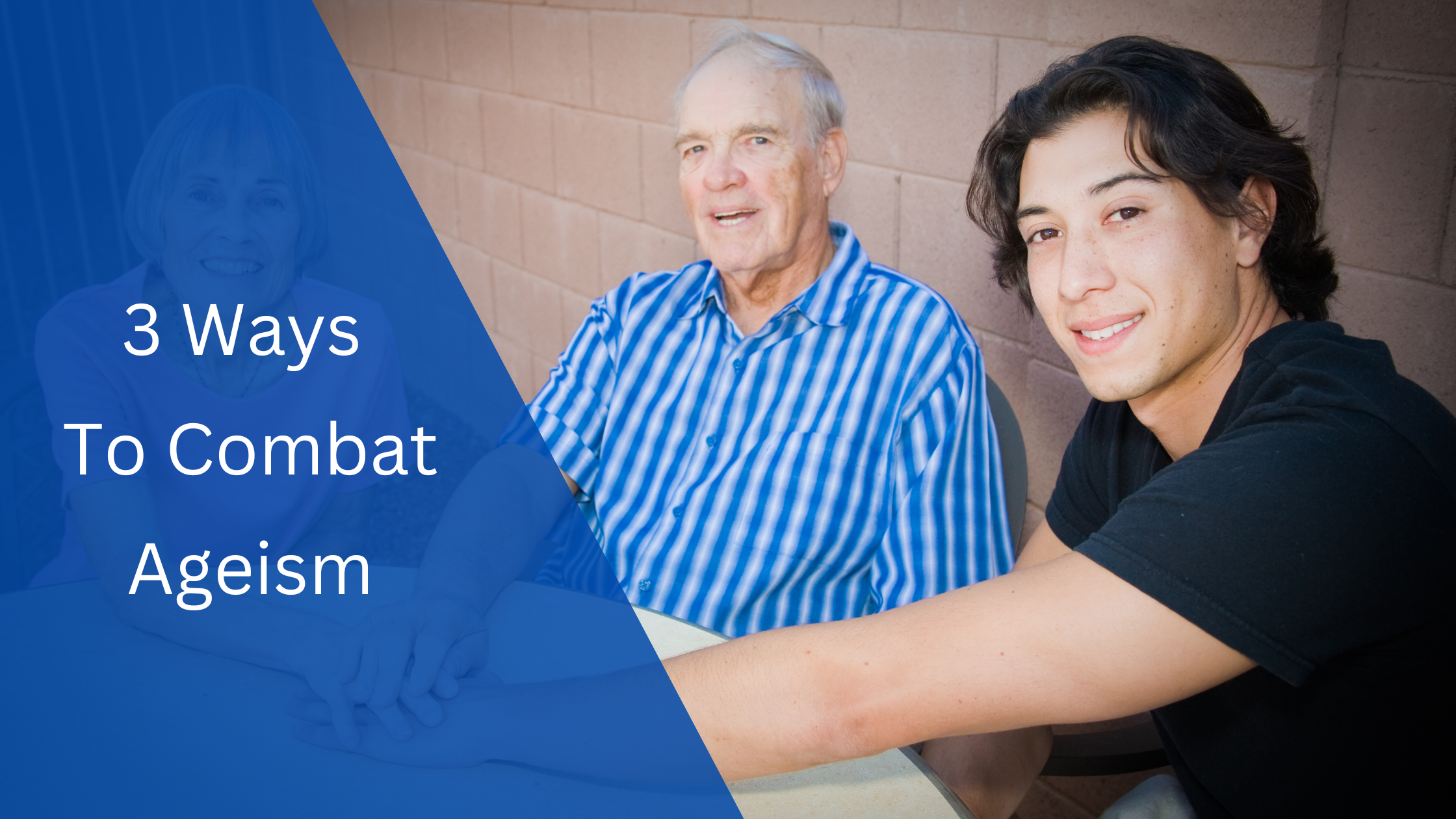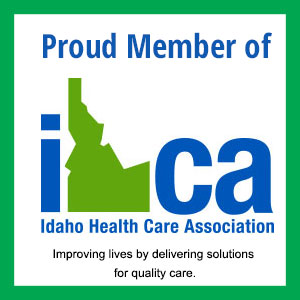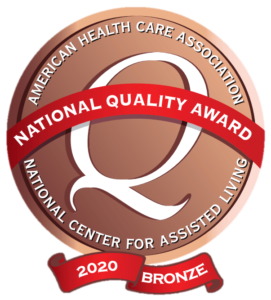
Recognizing and combating ageism is crucial. Ageism plagues our society and affects millions of people throughout our nation and the world. It is not specific to gender, race, or religion, and can impact anyone. A national study revealed that 82% of aging Americans are impacted by ageism on a regular basis. So, what are ways that people can recognize and combat ageism?
#1 Understand What Ageism Is
Ageism is discrimination against individuals or groups based on their age. One might think that ageism is only towards older people, however, there are forms of ageism against young people as well. Ageism can take place in institutions, the media, workplaces, and everyday social interactions. Ageism is a growing problem and often goes unnoticed because there is not as much awareness around it. Ageism is often geared towards the elderly and can be manifested in different ways. Some examples of ageism might include:
- Companies look over or not hiring someone because of their age.
- Family members overlook their aging parents or grandparents, or view them as less intelligent or capable because of their age.
- Movies, commercials, or media negatively portray an individual or individuals based on their age.
- Disregarding one’s comfort, needs, or desires because of their age.
- Enforcing control, manipulation, or coercion over someone based on their age.
- Infantilizing patients or loved ones due to their age.
- Perceiving people as frail, incapable, or less valued because of their age.
- Denying or giving inferior healthcare or access to healthcare due to age.
In our everyday activities, ageism might look something like this. Alice is 85, healthy and strong. She has lived a great life and loves to read, write, explore, attend social activities, and travel. She has goals, ambitions, and is a continual learner. At a family gathering, she noticed that people were hesitant to talk to her and when they did, it seemed as though she was an afterthought. When she wanted to do something new, like visit a new city, or take a new class, people did not want her to do that. They said, “You have been to many places, it is time for you to slow down. Concerning the new class, she was told that she has already completed her education, and maybe she should consider doing something more appropriate for her age. Sometimes she would notice that when people spoke to her, they would raise their voices and speak slowly. Other times she would feel belittled because they would use baby talk, or oversimplified language, such as “sweetie” or “honey”, because they think she does not understand what they are saying. This left Alice feeling disrespected, ignored, forgotten, and as though she had been left to the wayside.
#2 Understand The Negative Impacts of Ageism
Did you know that one in two people are ageist against older people? Ageism negatively impacts people’s overall well-being including mental, physical, social, emotional, and spiritual health. This can result in illness, isolation, decreased desire to prosper, depression, and engaging in unhealthy behaviors such as drinking and drugs. Ageism has been linked to higher healthcare spending, poverty, and lower life expectancy. In fact, research shows that individuals who suffer from ageism have a decrease in life expectancy by approximately 7.5 years. As millions of older adults age, ageism will become more prevalent if awareness and steps to stop it are not put in place.
#3 Take Steps To Stop It
In order to stop something that has been intertwined into society for years, people must be educated and understand that there is a problem. Society must realize and recognize how ageism appears in our conversations, actions, media, and stereotypes. For example, if someone is making fun of a person because of their age and using disrespectful phrases such as “old man” or “geezer”, bring it to their attention and don’t allow this to continue. Help them understand that this is ageism and is harmful. Here are some more ways that society can fight against ageism.
- Companies need to educate their staff on ageism and train their employees on how to avoid it from entering the workplace. Further, they must strive to create an equal employment opportunity for all.
- Families must recognize the negative toll that ageism takes on their loved ones and strive to appreciate all ages of life. Members who are older in age must be treated with dignity and respect and reminded that they matter, and their needs are just as important as everyone else.
- Individuals must be a voice and advocate against ageism. This can be done through organizations, educational programs and materials, and speaking up when needed.
- Recognize that every stage of life has value, belonging, and serves a purpose.
Ageism is a growing concern and with it comes serious negative consequences. However, as awareness around it grows and people make a concerted effort to overcome it, society will reap the benefits and prosper.
References
WHO. (2023). Ageism. Retrieved from https://www.who.int/health-topics/ageism#tab=tab_1
APA. (2003). Fighting ageism. Retrieved from https://www.apa.org/monitor/may03/fighting
Let Us Help You Today!
We welcome the opportunity to speak with you about careers at The Cottages and the care that our residents receive at our Idaho locations. We are experts in assisted living, memory care, respite, adult day care, and have been serving seniors for over 20 years. Our small home-like senior living homes and specially-trained team members offer an atmosphere that promotes the well-being of your loved one.
If you have any questions, would like to tour one of the Idaho assisted living or memory care homes, or speak with one of our licensed administrators, please fill out the form below. Please mention which location(s) you’re interested in.



